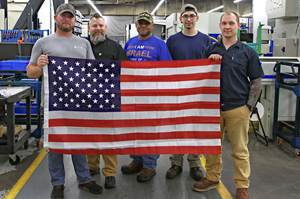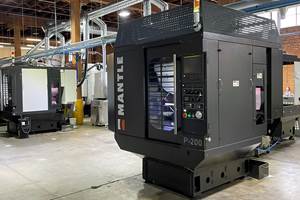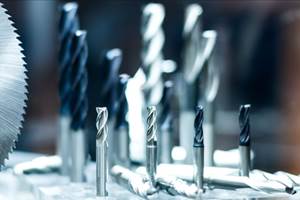People and Systems
The 2016 election and its outcome offer two lessons manufacturers will recognize.
Share






What are the lessons of the 2016 election? I am sure we’ve only begun to learn them, but I see two that will ring true at least to manufacturers.
One relates to systems. We got a clue to this lesson during the presidential primaries. In the news reporting of the primary contests on both sides, many noticed for the first time the concept of “superdelegates.” One party has them and the other does not. What that clue indicates is that the parties are free to choose the systems by which they select their candidates, and those systems could be different. As the clue shows, they are already different from one another.
This year, those systems both failed. Both major parties offered up candidates that were widely unpopular from the outset. Neither reflected the hopes or values of anywhere near even half of the voters. America was going to feel unsettled on November 9 no matter what.
But again, those systems could be different. Maybe with different criteria for finding and elevating contenders. Maybe with a different means of selecting from among a large candidate pool. As it was, the American people faced the choice these systems gave them, and they chose. Manufacturers will recognize the problem: A sub-par system impedes output as people slog as best they can within it.
But now look at that slog. One striking aspect of this election was the span of agreement among opinion influencers. Polls largely agreed on which choice would prevail. Commentators from different camps agreed on which choice ought to prevail. One couldn’t be faulted for assuming the matter was done. Yet against all this, people showed up. They stood on their actual opinion, which as far as they knew was unpopular and narrowly held. And in so doing, they changed a great deal. They changed the course we are on.
I am not wise enough to see what happens next. And I think I have no delusions about the election’s winner. But I am hopeful. With this great change, we have been given a different set of chances.
I write about manufacturing. So let it be my small contribution here to offer up the lessons manufacturers can see. The first, as I said, relates to systems. Systems shape outcomes. In a production process, in a political process, we should not fault the people if the design of the system impedes them. Question and correct the system’s failings instead.
But the second lesson relates to people. People are amazing. They push ahead, and in their push, can achieve something in spite of the impediments. Few manufacturers have production processes as arbitrarily designed as our election process, so manufacturers are that much further ahead. Taking the sweep of this election, then, and reducing it briefly into the themes we recognize from our shops, we find this much: (1) It is valuable to develop systems that enable people to realize the best they can deliver, and (2) as valuable as that is, the people involved are even more valuable still. People—people who care—will ultimately find some way to surpass or transcend the system.
Related Content
Finding Skilled Labor Through Partnerships and Benefits
To combat the skilled labor shortage, this Top Shops honoree turned to partnerships and unique benefits to attract talented workers.
Read MoreIn Moldmaking, Mantle Process Addresses Lead Time and Talent Pool
A new process delivered through what looks like a standard machining center promises to streamline machining of injection mold cores and cavities and even answer the declining availability of toolmakers.
Read MoreHow I Made It: Nushrat Ahmed: CNC Swiss Operator
By day, 21-year-old Nushrat Ahmed is a CNC Swiss operator making automotive parts. By night, she handcrafts crocheted items.
Read MoreAddressing the Manufacturing Labor Shortage Needs to Start Here
Student-run businesses focused on technical training for the trades are taking root across the U.S. Can we — should we — leverage their regional successes into a nationwide platform?
Read MoreRead Next
AMRs Are Moving Into Manufacturing: 4 Considerations for Implementation
AMRs can provide a flexible, easy-to-use automation platform so long as manufacturers choose a suitable task and prepare their facilities.
Read MoreMachine Shop MBA
Making Chips and 91ÊÓƵÍøÕ¾ÎÛ are teaming up for a new podcast series called Machine Shop MBA—designed to help manufacturers measure their success against the industry’s best. Through the lens of the Top Shops benchmarking program, the series explores the KPIs that set high-performing shops apart, from machine utilization and first-pass yield to employee engagement and revenue per employee.
Read More

















